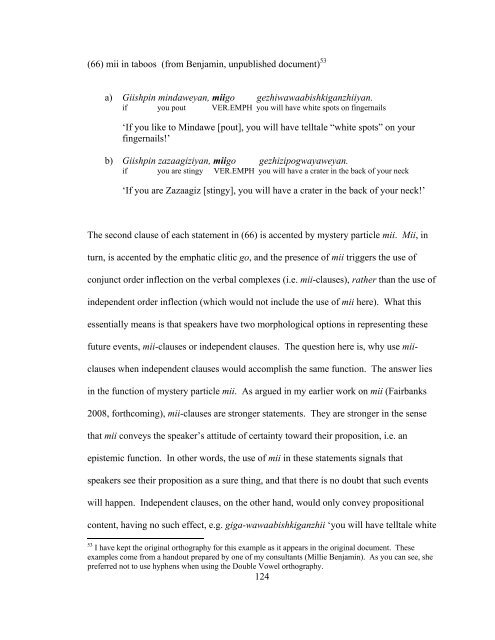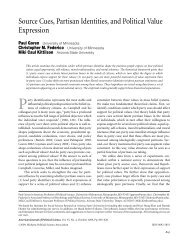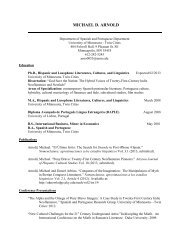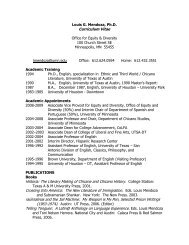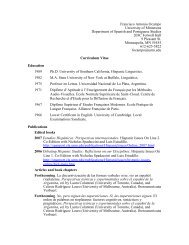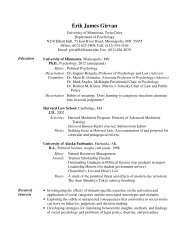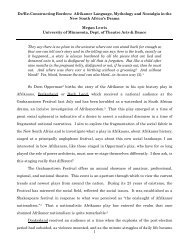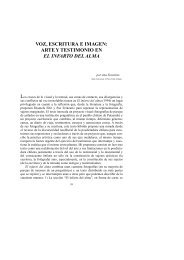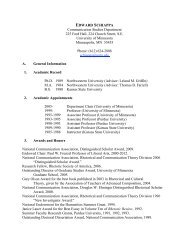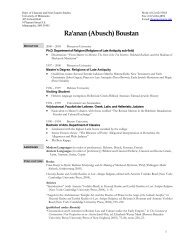A DISSERTATION SUBMITTED TO THE FACULTY OF THE ...
A DISSERTATION SUBMITTED TO THE FACULTY OF THE ...
A DISSERTATION SUBMITTED TO THE FACULTY OF THE ...
Create successful ePaper yourself
Turn your PDF publications into a flip-book with our unique Google optimized e-Paper software.
(66) mii in taboos (from Benjamin, unpublished document) 53<br />
a) Giishpin mindaweyan, miigo gezhiwawaabishkiganzhiiyan.<br />
if you pout VER.EMPH you will have white spots on fingernails<br />
‘If you like to Mindawe [pout], you will have telltale “white spots” on your<br />
fingernails!’<br />
b) Giishpin zazaagiziyan, miigo gezhizipogwayaweyan.<br />
if you are stingy VER.EMPH you will have a crater in the back of your neck<br />
‘If you are Zazaagiz [stingy], you will have a crater in the back of your neck!’<br />
The second clause of each statement in (66) is accented by mystery particle mii. Mii, in<br />
turn, is accented by the emphatic clitic go, and the presence of mii triggers the use of<br />
conjunct order inflection on the verbal complexes (i.e. mii-clauses), rather than the use of<br />
independent order inflection (which would not include the use of mii here). What this<br />
essentially means is that speakers have two morphological options in representing these<br />
future events, mii-clauses or independent clauses. The question here is, why use mii-<br />
clauses when independent clauses would accomplish the same function. The answer lies<br />
in the function of mystery particle mii. As argued in my earlier work on mii (Fairbanks<br />
2008, forthcoming), mii-clauses are stronger statements. They are stronger in the sense<br />
that mii conveys the speaker’s attitude of certainty toward their proposition, i.e. an<br />
epistemic function. In other words, the use of mii in these statements signals that<br />
speakers see their proposition as a sure thing, and that there is no doubt that such events<br />
will happen. Independent clauses, on the other hand, would only convey propositional<br />
content, having no such effect, e.g. giga-wawaabishkiganzhii ‘you will have telltale white<br />
53<br />
I have kept the original orthography for this example as it appears in the original document. These<br />
examples come from a handout prepared by one of my consultants (Millie Benjamin). As you can see, she<br />
preferred not to use hyphens when using the Double Vowel orthography.<br />
124


